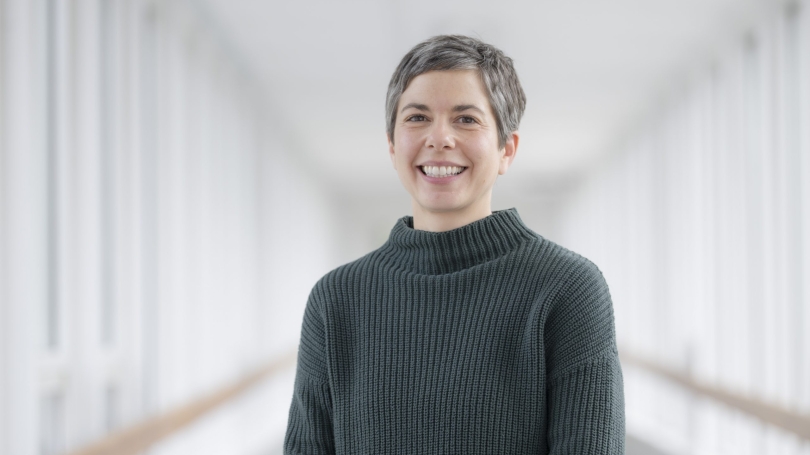
- Public Policy
- Leadership
- Funding
- News & Events
- About the Center
Back to Top Nav
Back to Top Nav
Back to Top Nav
Back to Top Nav
Like many first-year students, Maia (Fedyszyn) Crawford '07 came to Dartmouth not knowing what she wanted to do. Looking back to her time as an undergraduate, Maia recalls "taking every intro class possible" before settling on her Government major. However, it was her minor classes in health and public policy through the Rockefeller Center that led Crawford to the work that really "energized and made [her] excited."
Today, Crawford works as a Research Project Director at The Dartmouth Institute (TDI), where she manages grants and supports and oversees research processes for a variety of health-related projects ranging from rural health disparities to healthcare inequity in Alzheimer's disease and related dementias. Crawford is also working on a new health economics and policy lab with health economist Carrie Colla. The lab hopes to translate research to "on the ground policies" that policymakers can use to inform their decisions, work that hearkens to her experiences with the Rockefeller Center.
Crawford describes her involvement in The Rockefeller Center's Class of 1964 Policy Research Shop (PRS) as being formative to her career as a health policy researcher. Crawford says, "presenting policy options through the Policy Research Shop and then seeing those options actually being taken up by state legislators was a really exciting thing to do. That's where I found my passion."
As a PRS student writing policy briefs on both Medicaid for foster children and improving retirement savings in New Hampshire, Crawford noted the uniqueness of the program: "In most college classes you simply learn about problems, but working with the Policy Research Shop, you actually got to do something to fix them." Like many PRS participants, Crawford had the opportunity to travel with her research group to Concord to present to a group of state policymakers. Though she recalls losing her voice, she still describes the experience as "a highlight of my undergrad experience."
Crawford advises students thinking about PRS to "take advantage of such an unique opportunity to be able to engage directly with policymakers." Crawford says participating in PRS allows students "an opportunity to not just write a paper that gets filed away in your professor's desk. A PRS project is actually in the real world now, and your work is contributing to this broader push to make policy change." Or, as Maia put it: "I loved knowing that my work was being put to good use and that I was actually doing something to help change the world."